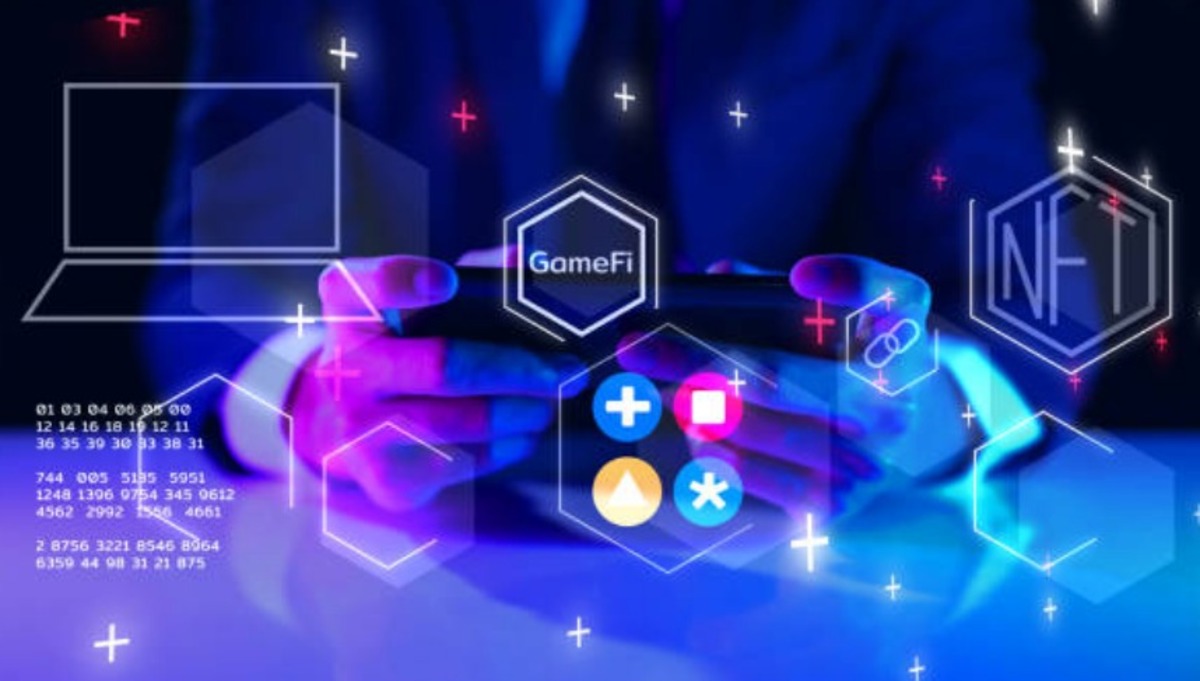Boat Drops: Your Portal to Aquatic Adventures
Explore the world of boating with tips, news, and insights.
Blockchain Brings the Fun: How Decentralized Gaming is Leveling Up
Discover how blockchain is transforming gaming into an exhilarating, decentralized experience. Level up your gaming adventure today!
Exploring the Impact of Blockchain on the Future of Gaming
Blockchain technology is revolutionizing various industries, and the gaming sector is no exception. By providing a decentralized platform, blockchain allows developers to create games that are not only more secure but also offer players true ownership of their in-game assets. Traditional games often suffer from issues like centralized control and lack of transparency, but with blockchain, players can buy, sell, and trade assets in a peer-to-peer manner, ensuring that they have actual rights to what they own. Furthermore, blockchain gaming can enhance the gaming experience by introducing concepts like play-to-earn models, incentivizing players through cryptocurrency rewards, and creating economies that flourish around them.
As the gaming landscape continues to evolve, the integration of blockchain could redefine how developers and players interact. With the rise of non-fungible tokens (NFTs), unique in-game items can be created and traded on blockchain platforms, granting players a sense of authenticity and value to their virtual possessions. Additionally, smart contracts can automate transactions and interactions within games, reducing the likelihood of fraud and giving players peace of mind. As developers continue to explore the potential of blockchain, we can expect a future where gaming not only entertains but also empowers players, with an ever-growing emphasis on community-driven economies and decentralized ownership.

Counter-Strike is a popular tactical first-person shooter game where teams of terrorists and counter-terrorists compete against each other in various game modes. Players can engage in intense firefights, use strategic tactics, and purchase weapons and equipment before each round. The competitive nature of the game has led to a thriving esports scene. For players looking for bonuses and promotions, you can check out the rollbit promo code to enhance your gaming experience.
What Makes Decentralized Gaming More Engaging? A Deep Dive
Decentralized gaming has emerged as a significant force in the gaming industry, fostering a sense of community and ownership among players. Unlike traditional gaming models, where a central entity controls the game, decentralized gaming operates on blockchain technology, allowing for a more transparent and player-driven experience. This technology enables players to truly own their in-game assets, which can be traded, sold, or utilized across various platforms. Moreover, the incorporation of smart contracts ensures that game mechanics are fair and immutable, further enhancing player confidence and engagement.
Another factor that contributes to the engagement in decentralized gaming is the potential for financial incentives. Players are not only rewarded for their time spent in the game but can also earn cryptocurrency through gameplay, creating a play-to-earn model that is quite appealing. This model transforms gaming from a hobby into a potential source of income, thereby attracting a wider audience. Additionally, by hosting decentralized autonomous organizations (DAOs), players can influence game development and decision-making processes, leading to a more personalized and dynamic gaming environment that fosters community involvement.
How Blockchain Technology is Revolutionizing In-Game Economies
Blockchain technology is fundamentally transforming in-game economies by introducing unprecedented levels of transparency, security, and decentralization. Traditional gaming models often operate on closed systems where players invest time and money without true ownership of their in-game assets. In contrast, blockchain enables players to own, trade, and sell digital assets securely, fostering a vibrant secondary market. As a result, players can now monetize their skills and time investment, effectively turning gaming into a viable source of income.
Moreover, the integration of smart contracts on blockchain platforms facilitates automatic transactions and ensures fair play. For instance, in-game items can be tokenized, which not only proves authenticity but also enhances the rarity and value of assets. This shift not only adds an economic layer to gaming but also attracts a broader audience, including investors and collectors interested in digital items. As developers continue to adopt this technology, the potential for innovation within in-game economies appears limitless, paving the way for a new era in gaming.